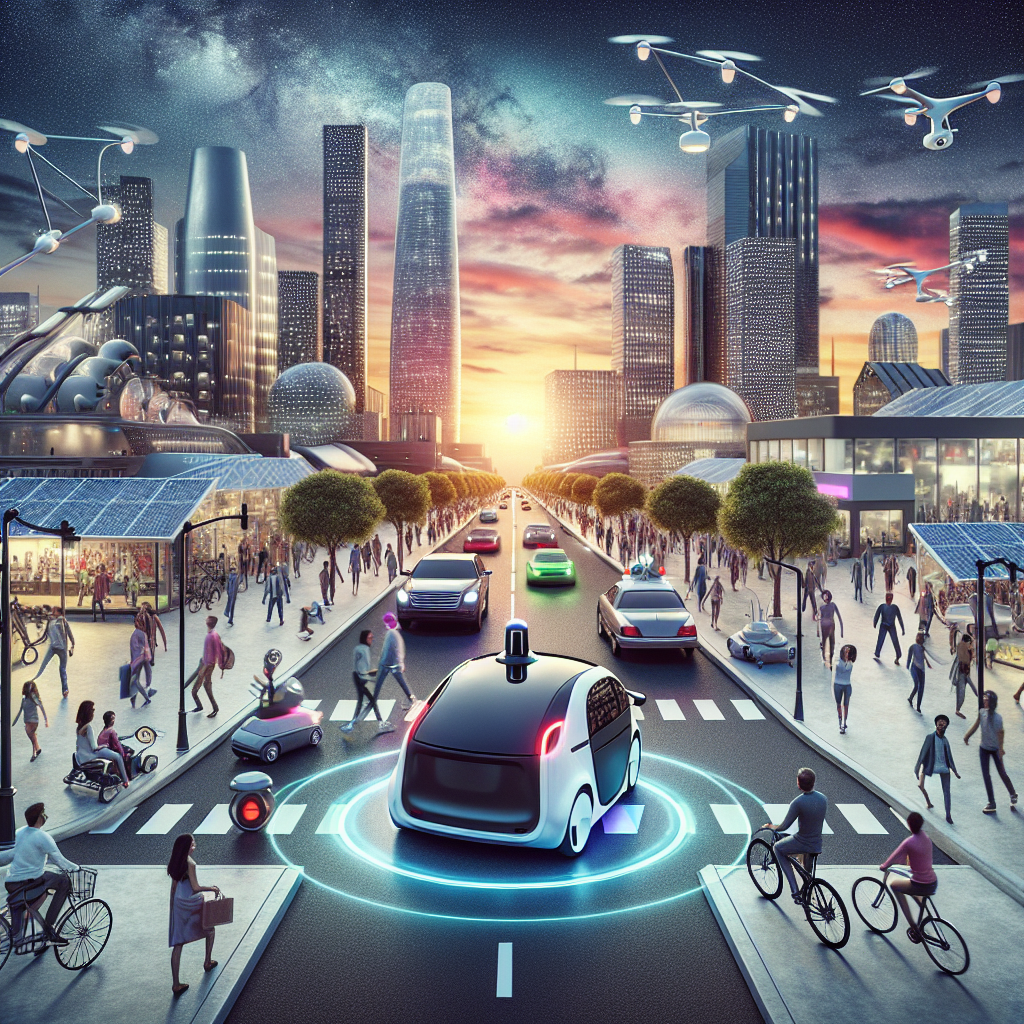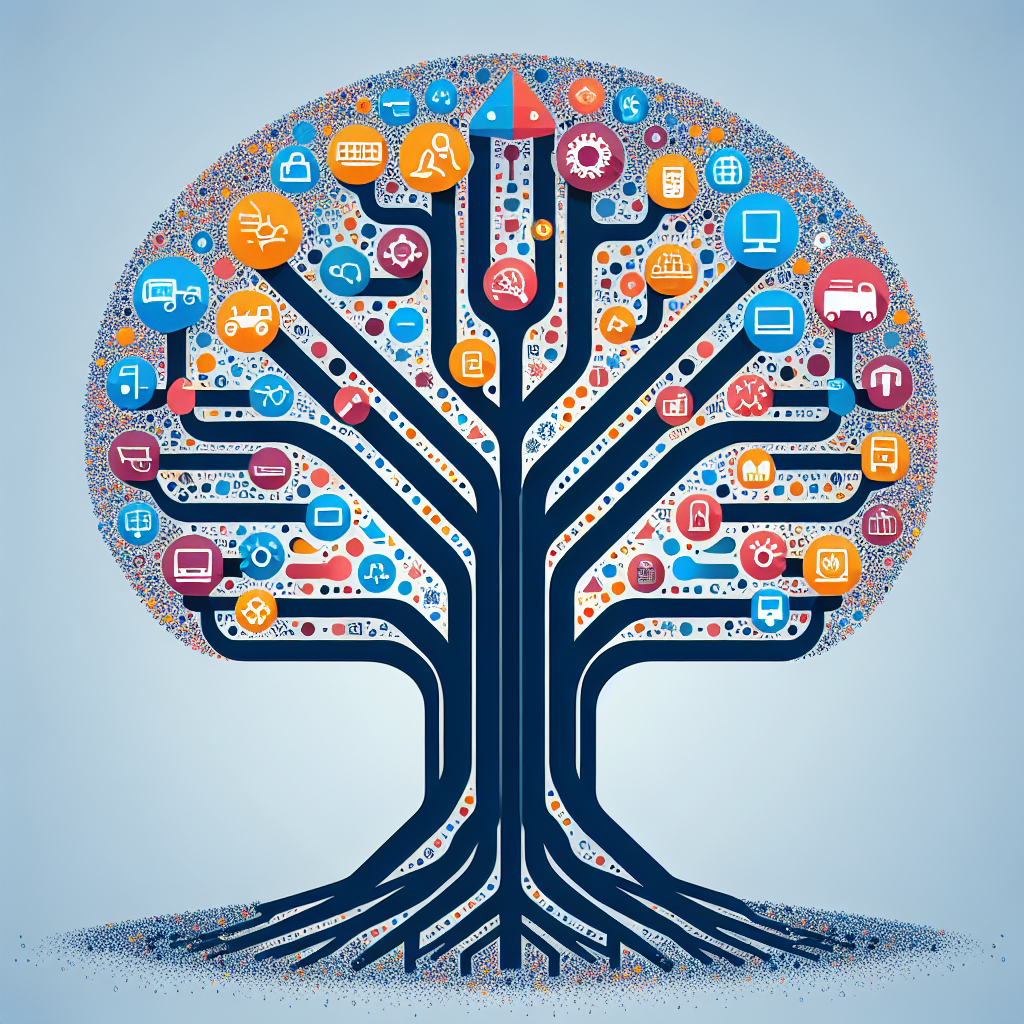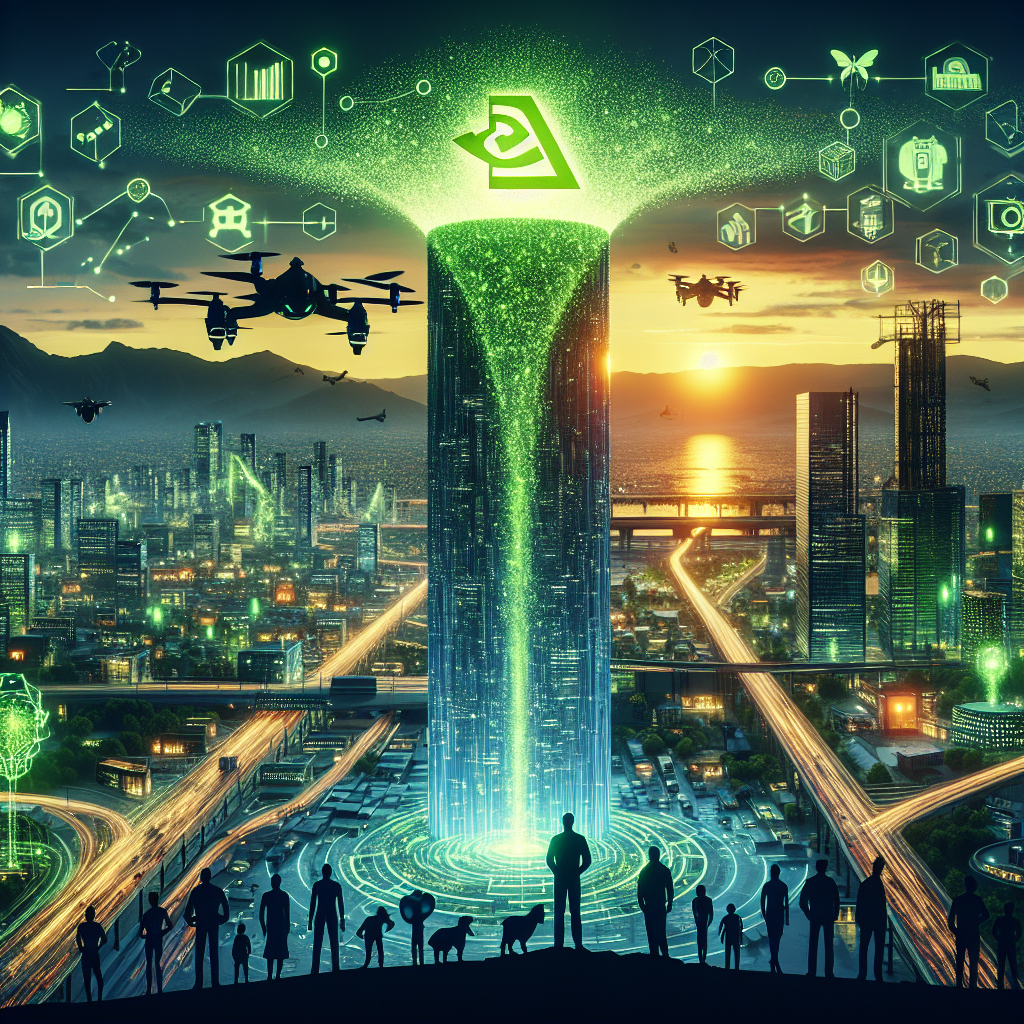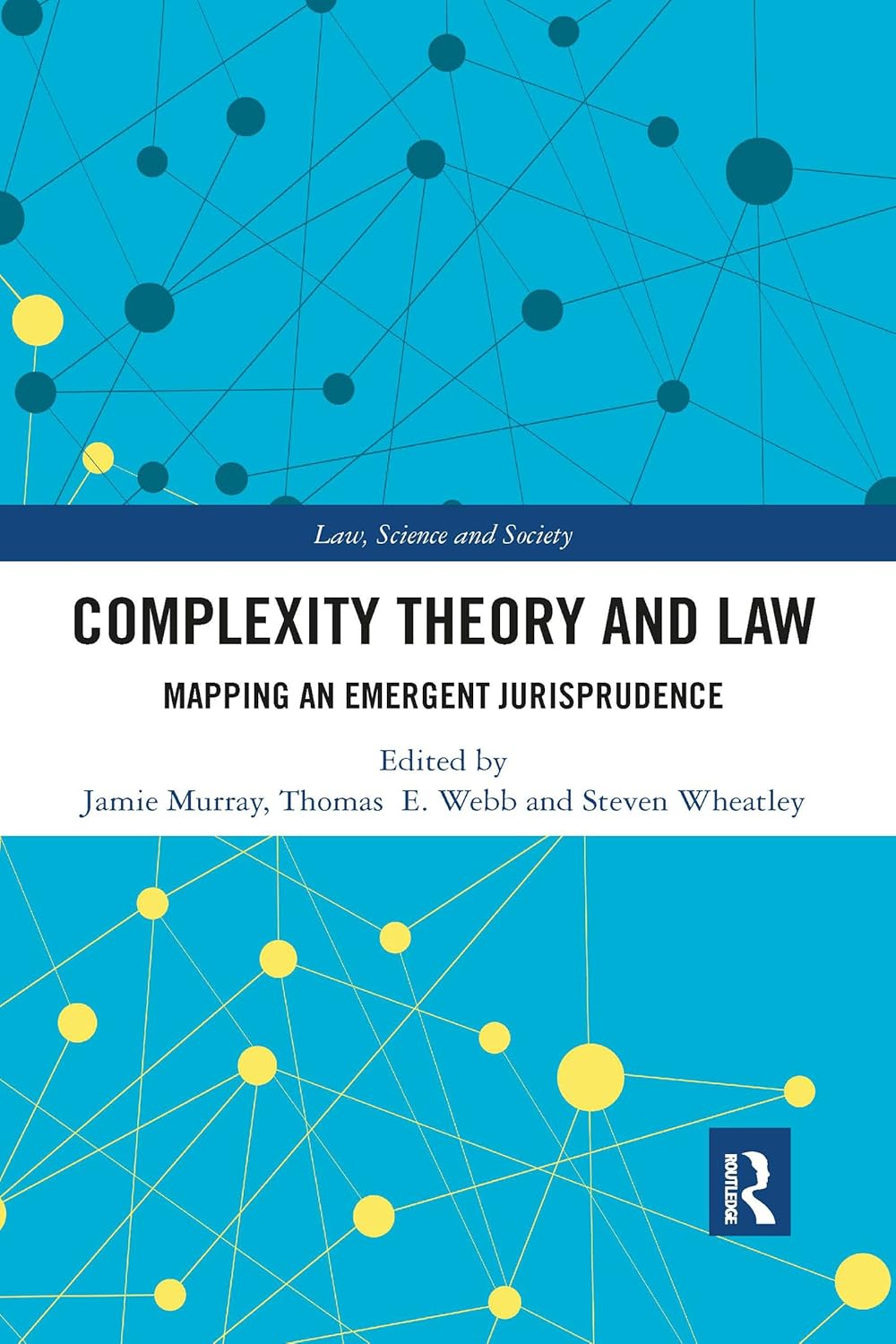Your cart is currently empty!
Tag: Society

Driving Towards the Future: The Impact of Autonomous Vehicles on Society
In recent years, the rapid advancement of technology has brought about numerous changes in our daily lives. One of the most anticipated developments in the field of transportation is the rise of autonomous vehicles. Also known as self-driving cars, these vehicles have the potential to revolutionize the way we travel and have a profound impact on society as a whole.Autonomous vehicles use a combination of sensors, cameras, and artificial intelligence to navigate roads and make decisions without human intervention. Proponents of this technology believe that it can greatly improve road safety, reduce traffic congestion, and provide more efficient transportation options for individuals with disabilities or limited mobility.
One of the key benefits of autonomous vehicles is their potential to greatly reduce the number of accidents on the road. According to the National Highway Traffic Safety Administration, 94% of accidents are caused by human error. By removing human drivers from the equation, autonomous vehicles have the potential to drastically decrease the number of accidents and save countless lives.
Additionally, autonomous vehicles have the potential to make transportation more efficient and convenient. With the ability to communicate with each other and traffic infrastructure, self-driving cars can navigate roads more efficiently, reducing traffic congestion and emissions. This could lead to shorter commute times and a more streamlined transportation system.
Furthermore, autonomous vehicles have the potential to provide greater access to transportation for individuals who are unable to drive themselves, such as the elderly or individuals with disabilities. By giving these individuals the ability to travel independently, autonomous vehicles have the potential to greatly improve their quality of life and provide greater opportunities for social interaction and mobility.
However, the rise of autonomous vehicles also raises important questions and challenges for society. One of the main concerns is the potential impact on the job market, particularly for individuals who work in the transportation industry. As autonomous vehicles become more prevalent, there is the potential for a significant number of jobs, such as truck drivers and taxi drivers, to be displaced.
Additionally, there are questions about the ethical implications of autonomous vehicles, particularly in situations where a self-driving car must make a decision that could result in harm to individuals. For example, if a self-driving car is faced with the choice of hitting a pedestrian or swerving and potentially harming the passenger, how should it make that decision? These ethical dilemmas will need to be addressed as autonomous vehicles become more widespread.
In conclusion, the rise of autonomous vehicles has the potential to greatly impact society in numerous ways. While there are many benefits to this technology, there are also important questions and challenges that must be addressed. As we move towards a future with self-driving cars, it is essential that we carefully consider the implications and work towards creating a transportation system that is safe, efficient, and equitable for all.

The Impact of Machine Learning on Society
Machine learning is a powerful technology that is shaping our society in numerous ways, from improving healthcare to transforming the way we shop online. With its ability to analyze vast amounts of data and make predictions based on patterns, machine learning is revolutionizing industries and changing the way we live and work.One of the most significant impacts of machine learning on society is in the field of healthcare. Machine learning algorithms can analyze medical data to diagnose diseases, predict patient outcomes, and even recommend personalized treatment plans. This has the potential to revolutionize the healthcare industry by improving the accuracy and efficiency of medical diagnoses and treatments.
In addition, machine learning is also playing a crucial role in other industries such as finance, marketing, and transportation. In finance, machine learning algorithms are being used to detect fraud, predict stock market trends, and automate trading decisions. In marketing, machine learning is helping businesses better understand their customers and target them with personalized advertising campaigns. And in transportation, machine learning is being used to optimize traffic flow, improve safety, and develop autonomous vehicles.
However, the impact of machine learning on society is not without its challenges. One of the main concerns is the potential for bias in machine learning algorithms. If the data used to train these algorithms is biased, it can lead to biased outcomes that perpetuate existing inequalities in society. For example, a machine learning algorithm used in hiring decisions may inadvertently discriminate against certain groups of people based on race or gender if the training data is not diverse enough.
Another concern is the potential for job displacement as automation becomes more prevalent in industries such as manufacturing and customer service. While machine learning has the potential to create new job opportunities in fields such as data science and artificial intelligence, it also has the potential to eliminate traditional jobs that can be easily automated.
Despite these challenges, the overall impact of machine learning on society is overwhelmingly positive. By harnessing the power of data and algorithms, machine learning has the potential to revolutionize industries, improve efficiency, and enhance our quality of life. As machine learning technology continues to evolve, it will be crucial for policymakers, businesses, and researchers to work together to address the ethical and societal implications of this powerful technology. Only by working together can we ensure that machine learning continues to benefit society as a whole.

The Rise of NVIDIA AI: A Look at the Impact on Society and Technology
NVIDIA, a leading technology company known for its graphics processing units (GPUs), has been making significant advancements in the field of artificial intelligence (AI) in recent years. With its powerful GPUs and deep learning algorithms, NVIDIA has been able to push the boundaries of what AI can achieve, leading to a rise in the use of AI technology across a variety of industries.One of the most significant impacts of NVIDIA AI technology is in the field of autonomous vehicles. NVIDIA’s AI-powered platforms have been instrumental in the development of self-driving cars, allowing them to navigate roads, interpret traffic signals, and make split-second decisions to avoid accidents. This technology has the potential to revolutionize the transportation industry, making roads safer and more efficient for everyone.
In addition to autonomous vehicles, NVIDIA AI is also being used in healthcare to improve patient outcomes and streamline medical processes. AI-powered algorithms can analyze medical images, such as MRIs and X-rays, to detect early signs of disease and assist doctors in making accurate diagnoses. This technology has the potential to save lives by catching diseases in their early stages and improving the efficiency of healthcare delivery.
Furthermore, NVIDIA AI is being used in the field of robotics to enhance the capabilities of machines and make them more autonomous. Robots powered by NVIDIA AI can perform tasks that were once considered too complex or dangerous for humans, such as navigating rough terrain or working in hazardous environments. This technology has the potential to revolutionize industries such as manufacturing, construction, and agriculture, making processes more efficient and cost-effective.
However, the rise of NVIDIA AI technology also raises concerns about its impact on society. Some critics worry about the potential loss of jobs as AI-powered machines replace human workers in various industries. There are also ethical concerns about the use of AI in decision-making processes, such as in the criminal justice system or in healthcare, where biases in the algorithms could have serious consequences for individuals.
Despite these concerns, the rise of NVIDIA AI technology represents a significant milestone in the advancement of AI and its potential to transform society and technology. As NVIDIA continues to push the boundaries of what AI can achieve, it is important for society to have conversations about the ethical implications of this technology and ensure that it is used responsibly and ethically. Ultimately, the impact of NVIDIA AI on society and technology will depend on how we choose to harness its power for the greater good.

Complexity Theory and Law: Mapping an Emergent Jurisprudence (Law, Science and Society)
Price:$55.99– $43.96
(as of Nov 21,2024 05:31:02 UTC – Details)
Publisher : Routledge; 1st edition (December 3, 2019)
Language : English
Paperback : 296 pages
ISBN-10 : 0367895250
ISBN-13 : 978-0367895259
Item Weight : 14.9 ounces
Dimensions : 6.14 x 0.67 x 9.21 inches
Complexity Theory and Law: Mapping an Emergent Jurisprudence (Law, Science and Society)In recent years, the intersection of complexity theory and law has garnered significant attention from scholars and practitioners alike. Complexity theory, a multidisciplinary framework that seeks to understand complex systems and their emergent properties, has been increasingly applied to the study of legal systems and jurisprudence.
This emerging field of study, often referred to as “complexity jurisprudence,” seeks to explore the ways in which legal systems exhibit complex, nonlinear dynamics and how these dynamics shape the development of law and legal institutions. By applying insights from complexity theory, scholars are able to better understand the interconnectedness of legal norms, institutions, and actors, and how these elements interact to produce emergent legal outcomes.
One key concept in complexity jurisprudence is the idea of self-organization, where legal systems exhibit the ability to spontaneously organize and adapt to changing circumstances without central control. This concept challenges traditional notions of legal authority and hierarchy, suggesting that legal systems are best understood as decentralized, self-organizing networks of actors and institutions.
Another important concept in complexity jurisprudence is the idea of emergence, where new legal norms and institutions arise from the interactions of individual actors and institutions. This concept highlights the dynamic and unpredictable nature of legal systems, and the ways in which legal change can emerge from the bottom-up rather than top-down.
Overall, the study of complexity theory and law offers a rich and promising avenue for exploring the ways in which legal systems evolve and adapt in response to changing social, political, and economic conditions. By mapping out the emergent properties of legal systems, scholars can gain new insights into the nature of law and jurisprudence, and develop innovative approaches to legal theory and practice.
In this post, we will delve deeper into the connections between complexity theory and law, exploring the implications of this emerging field of study for legal scholarship and practice. Stay tuned for a closer look at the exciting developments in complexity jurisprudence and its implications for the future of law, science, and society.
#Complexity #Theory #Law #Mapping #Emergent #Jurisprudence #Law #Science #Society
